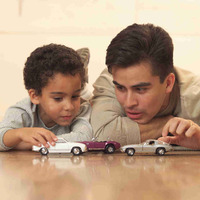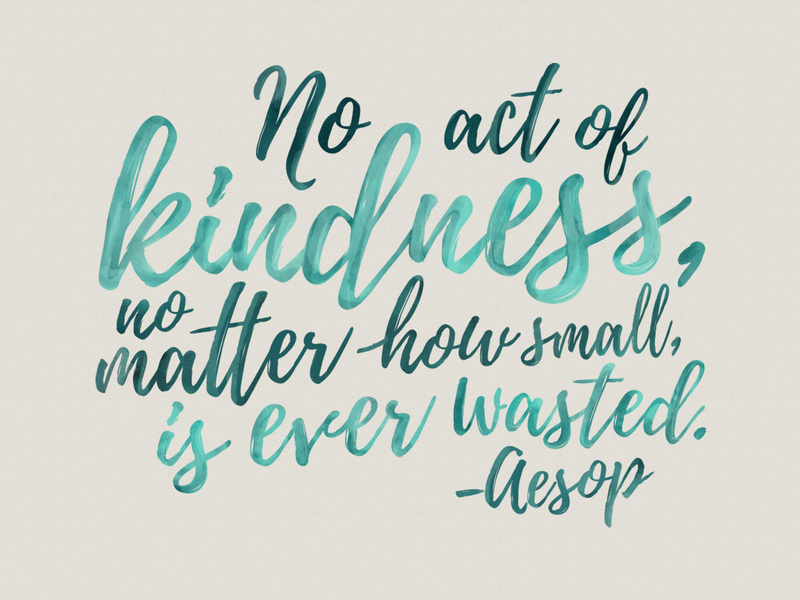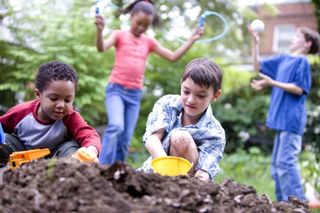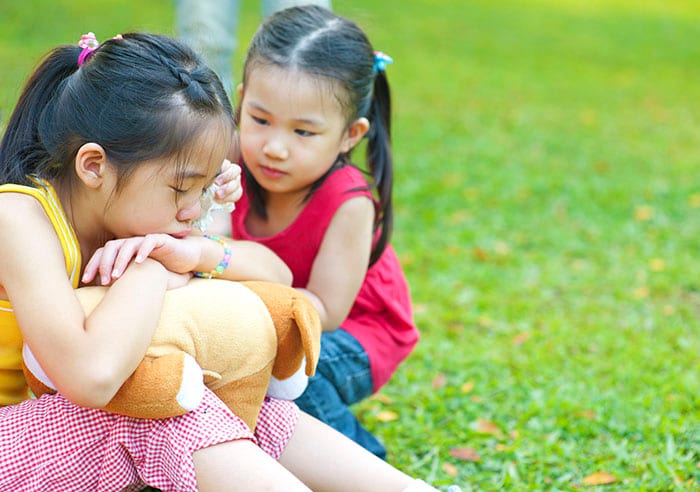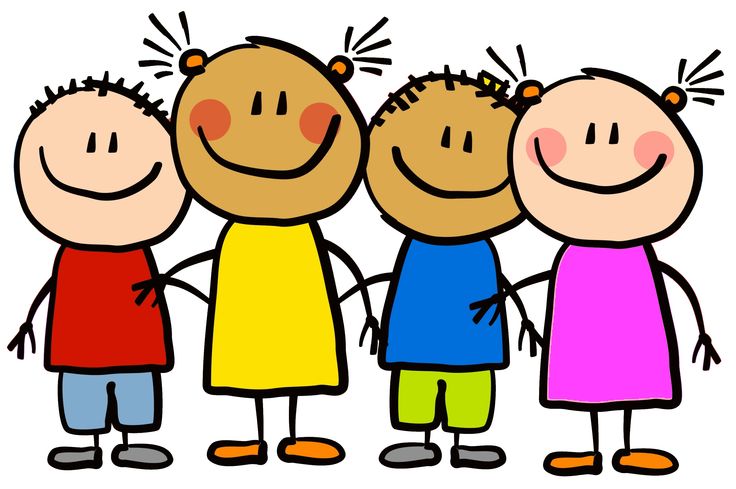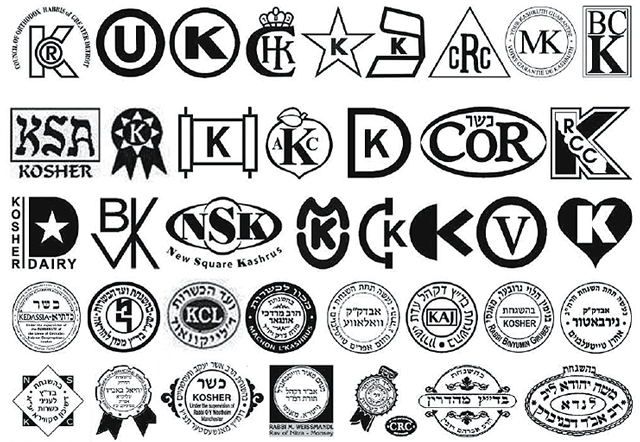Welcome to Agudas Achim Preschool’s
thirteenth anniversary celebration! Some of you are here because your children
attend our preschool, or they did a few years ago. Many of you are here simply because
you believe in our mission and support us.
 Some of you are here because you
heard we were serving deli, or because you thought the idea of a mitzvah DJ
party without all the teenagers sounded like a brilliant idea. Whatever your
reason, thank you for being here tonight.
Some of you are here because you
heard we were serving deli, or because you thought the idea of a mitzvah DJ
party without all the teenagers sounded like a brilliant idea. Whatever your
reason, thank you for being here tonight.
So, what’s it mean that Agudas Achim
Preschool is entering its adolescent phase?
Most people probably don’t remember
their teen years fondly. In so many ways, it really was the toughest, most
confusing time in our lives. It was a time that came with so many changes, so
many doubts. But what we might have forgotten is that it was also a time that
came with so many possibilities.
Our adolescence was the first time
in our lives when we realized what we were capable of. When we discovered our
passions. When we realized that the path ahead was full of limitless
opportunities. When we first began to figure out just who and what we wanted to
be when we grew up.
 So, for the preschool, our
adolescence will mean finding new ways to grow and learn as a community. We’ll find
new ways to challenge ourselves, all the while striving to be the best
preschool we can be, to serve the children in our synagogue community and the
children in our neighborhood the best way we know how: with joy and laughter, patience
and gratitude, passion and creativity, and with the knowledge that we are all
created B’tzelem Elohim, in the image of God. It is our purpose and our
privilege to respect and nuture the divine spark in each and every child who
walks through our doors every single day.
So, for the preschool, our
adolescence will mean finding new ways to grow and learn as a community. We’ll find
new ways to challenge ourselves, all the while striving to be the best
preschool we can be, to serve the children in our synagogue community and the
children in our neighborhood the best way we know how: with joy and laughter, patience
and gratitude, passion and creativity, and with the knowledge that we are all
created B’tzelem Elohim, in the image of God. It is our purpose and our
privilege to respect and nuture the divine spark in each and every child who
walks through our doors every single day.
There are scores of people to thank
for the past thirteen years. I’m going to forget someone, and for that I
apologize.
First, Elliot Stein, of blessed
memory: Your early financial commitment to the preschool was a testament to your
belief, a belief based on your life experience, that it is our responsibility
as a community to nurture and educate the next generation of Jewish children as
well as build strong and lasting relationships with our neighbors.
Jack Moline, Bob Myers, David
Sattler, of blessed memory, and so many other truly dedicated moms and dads: This,
all of this, was your idea. Thank you.
 Barbara Fiedler: You stepped up,
more than once, when the preschool needed a steady hand. The preschool simply
could not have survived without you.
Barbara Fiedler: You stepped up,
more than once, when the preschool needed a steady hand. The preschool simply
could not have survived without you.
Mirza Lopez: You never once wavered
in your commitment to the preschool and you always, always made it a priority
in our community.
Bob, Beth Robbins, Neal Kramer, and
others: I’m not sure whose idea the playground was, but I do know it could not
have been built without your vision, dedication, and hard work.
To all the directors who preceded
me, Galeet Westreich, Barbara, Sue Finger, Sue Keitelman, and Debbie Howard: Your
commitment to early childhood education and to this job in particular is
evident in ways that cannot be measured.
On a personal note, to the
professional staff I’ve had the privilege of working with, Steven Rein, Elisheva
Dienstfrey, Chaya Silver, Miri Bernovsky, and Barry Nove: Your counsel, your
understanding, and your friendship has sustained me in more ways than you know.
 To the synagogue staff who regularly
put in more hours every week that most everyone realizes, Jack and Diana and
Cheryl in the kitchen, Kat and Erica and Marya in the office, Elmer and Pat and
KB everywhere else in the building: In ways large and small, you make it so we
can open every single day.
To the synagogue staff who regularly
put in more hours every week that most everyone realizes, Jack and Diana and
Cheryl in the kitchen, Kat and Erica and Marya in the office, Elmer and Pat and
KB everywhere else in the building: In ways large and small, you make it so we
can open every single day.
To every member of the
congregation, preschool VP and board president and board member: Thank you for
believing in our mission and for supporting us in our endeavors.
To every preschool parent
volunteer: The countless hours you have dedicated to this preschool are evident
in every classroom and in the faces of every child.
To anyone who has ever donated any
money to the preschool ever: Thank you. Just thank you.
To every teacher: The best teachers
make the best schools. We wouldn’t be where we are today without each of you
and the love you bring to your job.
To all of our families: Thank you
for sharing your most precious gifts with us each and every day. We are humbled
by the trust you place in us.
And to all of the preschool’s children:
This is all for you.
Finally, there are scores of people
to thank for this evening as well.
To my friends at Gesher, the only
Jewish day school in Northern Virginia: I can’t thank you enough for being here.
I’m looking forward to celebrating with you at your 36th anniversary
celebration in just a few weeks.
To all of our event sponsors,
Pastries by Randolph, Everything Entertainment, and Clay-smile Entertainment: We
so appreciate your support and generosity, and your connection to our
community.
 To the dozens and dozens of raffle
donors: Your generosity has been overwhelming. Please note that every single
raffle item in our truly amazing raffle has been donated. I know I’m excited
for the drawings at 9 pm because I can’t wait to see who wins!
To the dozens and dozens of raffle
donors: Your generosity has been overwhelming. Please note that every single
raffle item in our truly amazing raffle has been donated. I know I’m excited
for the drawings at 9 pm because I can’t wait to see who wins!
Finally, there are no words to
express my deepest thanks to Stefanie Byrne, parent volunteer and event planner
extraordinaire. No one but your husband Paul and I will ever truly know the
hours you put into this event, as well as the hours you put into the Fall
Festival back in November. To say you’ve gone above and beyond is a bit of an
understatement. Please join me in giving Stefanie a round of applause, since
she won’t let me honor her any other way. And, help me in wishing Stefanie and
Paul a Happy 11th Anniversary, which is today!
One last thing: as with any
milestone celebration, it’s appropriate to express gratitude for the milestone itself.
There’s a Jewish blessing that means, “Thank you, God, who has granted us life,
who has sustained us, and who has enabled us to reach this moment in time.”
Please join me if you can: Baruch atah, Adonai Eloheinu, Melech
haolam, shehecheyanu, v'kiy'manu, v'higiyanu laz'man hazeh.
Thank you!

















